18 Jan Conference by Mariano Fazio on “Freedom, truth and university”
The former rector of the Pontifical University of the Holy Cross and current auxiliary vicar of Opus Dei, Mariano Fazio, gave the conference entitled “Freedom, truth and university” on January 18. Priest, historian, philosopher and university professor, the speaker spoke in the afternoon in front of more than four hundred people, in the Aula Magna of the University. In the morning, Fazio had the opportunity to get to know the two campuses of UIC Barcelona.
Opening with our University motto, veritas liberabit vos (the truth will make you free), Mariano Fazio asked, “what is this truth that is so great that it makes us free, that leads us to have a full life?” This question led him to spell out tOpening with our University motto, veritas liberabit vos (the truth will make you free), Mariano Fazio asked, “what is this truth that is so great that it makes us free, that leads us to have a full life?” This question led him to spell out the anthropological characteristics of man, emphasising one fundamental characteristic, which sets the pace in moving toward this fullness: “We come from God and return to God; this is the great theme of many classics,” he said.
“The person is made for good, beauty; that which the classics call the transcendentals. And, to reach our final end, we must do it freely.”
Fazio, using the words of Pope Francis affirmed that “we are not in this world as wanders, but as pilgrims.” The wander, disoriented with no compass, going in circles not knowing where they are, while the pilgrim walks, freely, toward a clear goal. “And if I mess up, I get up; and if there is something that keeps me from walking on the road, I get rid of it.”
And Fazio linked truth and freedom with the University. “What does all this have to do with the university? A lot. The love the Christian faith has for the truth. In fact, universities were born from that love for the truth.” The truth about the world. The truth about man. “The primary key to the pontificate of John Paul II was the truth about the human person. And of Benedict XVI, the confidence of man to reach the truth and overcome what he called the ‘dictatorship of relativism’, if faith and reason work together.”
Mariano Fazio insisted on the need for this dialogue between faith and reason, because “a faith without reason is fanaticism and a reason, without faith, positivism.” That is why he was very clear that “the task of the university is to be open to the truth and to constantly rediscover it.”
“A faith without reason is fanaticism and a reason, without faith, positivism”
“The task of the university is to be open to the truth and to constantly rediscover it”
It is true that there are some disciplines, such as the Humanities, that go deeper into these questions, but “we also have to discover, in all the other disciplines, this vocation of service: to make ourselves available to the human person. The same is an economist, an architect or a doctor. “Every profession has a humanistic perspective that must be cared for.”
The conference ended with a colloquium in which there was an opportunity to ask the lecturer questions. Fazio had the opportunity during the morning to visit the clinics on the Sant Cugat Campus, where he admired the great human work being carried out specifically in the UIC Barcelona Cuides Clinic.
Mariano Fazio is a lecturer of History of Political Doctrines at the Pontifical University of the Holy Cross and has also served as rector. He is the author of more than thirty books which include, among other, Libertad para amar a través de los clásicos [Freedom to Love Through the Classics] (2022) and Contracorriente…hacia la libertad [Countercurrent… Towards Freedom] (2021). He currently works in Rome as auxiliary vicar of Opus Dei.




